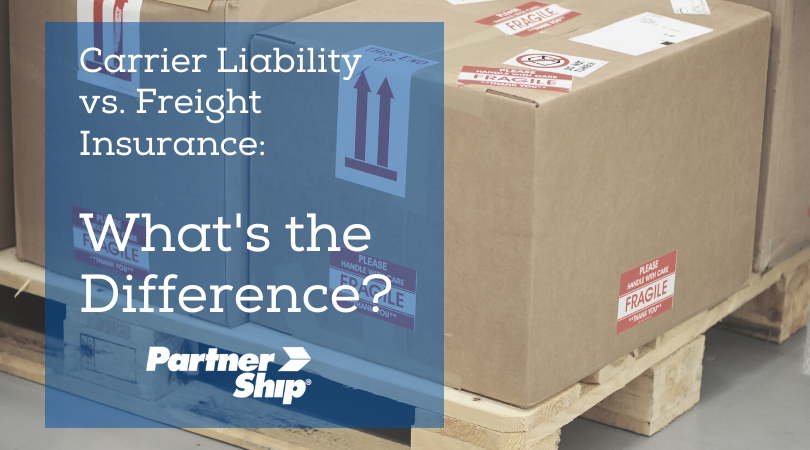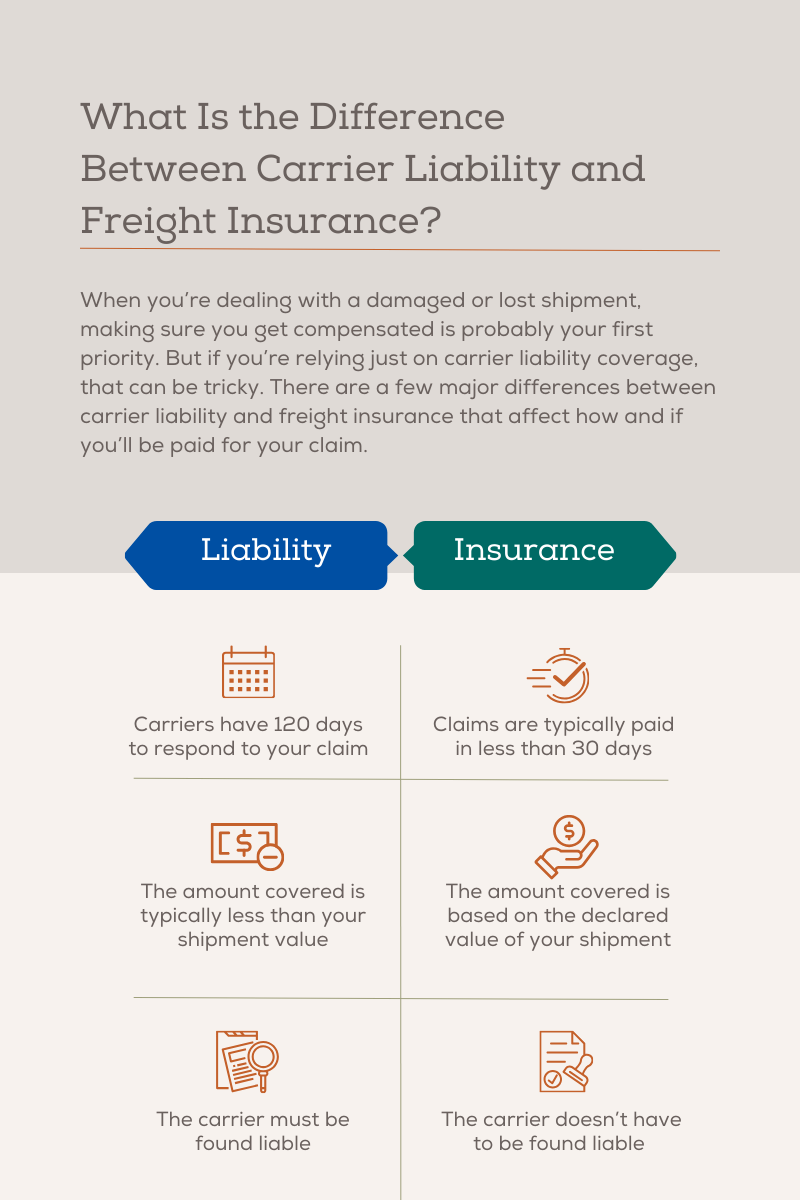
Freight damage and loss is a reality of shipping. It’s
not a matter of
if it will happen
to you; it’s a matter of
when.
When damage or loss occurs, your first thought is often, “how will I be compensated?”
To answer the question, you need to understand the difference between carrier
liability and freight insurance.
Carrier Liability
Every freight shipment is covered by some form of liability coverage, determined by the carrier. The amount of coverage is based on the commodity type or freight class of the goods being shipped and
covers up to a certain dollar amount per pound of freight.
In some cases, the carrier liability coverage may be less than the actual value
of the freight. It’s common to see liability restricted to $0.25 per lb. or less for LTL or $100,000 for a full truckload. Also, if your goods are
used, the liability value per pound will be significantly less than the
liability value per pound of new goods. Liability policies can vary, so it’s very important to know the carrier’s liability for freight
loss and how much is covered before you arrange your freight shipment.
Freight damage and loss is a headache. In order to receive
compensation, a shipper must file a claim proving the carrier is at
fault for the damaged or lost freight. Carrier liability limitations include
instances where damage is due to acts of God (weather related causes) or acts
of the shipper (the freight was packaged or loaded improperly). In these cases,
the carrier is not at fault. Additionally, if damage is not noted on the
delivery receipt, carriers will attempt to deny liability.
If the carrier accepts the claim evidence provided by the
shipping customer, then they will pay for the cost of repair (if applicable) or manufacturing cost,
not the retail sell price. The carrier may also pay a partial claim
with an explanation as to why they are not 100% liable. The carrier will try to
decrease their cost for the claim as much as possible.
Freight Insurance
Freight insurance (sometimes called cargo insurance or goods
in transit insurance) does not require you to prove that the carrier was at
fault for damage or loss, just that damage or loss occurred. Freight insurance is
a good way to protect your customers and your business from loss or damage to your
freight while in transit. There is an extra charge of course, and it is typically
based on the declared value of the goods being shipped. Most freight insurance plans
are provided by third-party insurers.
As mentioned earlier, your freight might have a higher
value than what is covered by carrier liability, such as shipping used goods.
Another example is very heavy items. Carrier liability may only pay $0.25 per
pound for textbooks that have a much higher value. This is a great example of
when freight insurance is extremely helpful in the event of damage or loss.
Carrier Liability
vs. Freight Insurance in the Claims Process
If your freight is only covered by carrier liability
coverage:
·
Your claim must be filed within 9 months of
delivery
·
The delivery receipt must include notice of
damage
·
Proof of value and proof of loss is required
·
The carrier has 30 days to acknowledge your
claim and must respond within 120 days
·
Carrier negligence must be proven
If your shipment is covered by freight insurance:
·
Proof of value and proof of loss is required
·
Claims are typically paid within 30 days
·
You are not required to prove carrier negligence

Deciding which option is best for your shipment
Anything that comes at an added cost needs to be evaluated critically and freight insurance is no different. There are a few things to consider as you weigh the potential cost and risk of damage and loss versus the cost and benefit of insurance. You'll need to think about the commodities you're shipping, how time critical your shipment is, and if you'd be able to weather the financial burden that comes with a denied or delayed claim payout.
Understanding your carrier's liability coverage and knowing the ins and outs of freight insurance can be tricky. If you have
questions like “how much does freight insurance cost?” or “what does freight
insurance cover?” the team at PartnerShip can help.